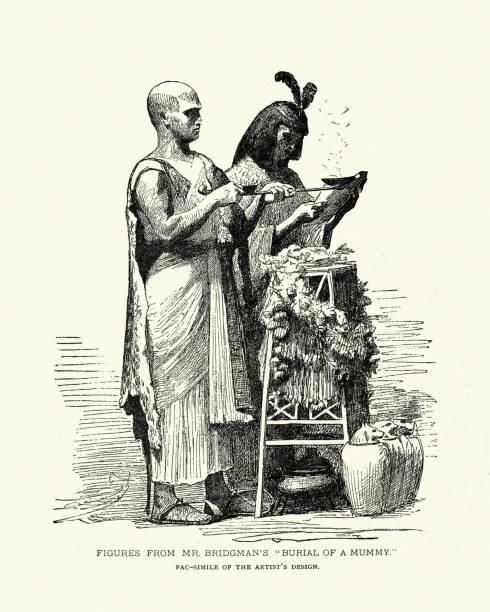What was the role of Priests in ancient Egypt?
The Role of Priests in Ancient Egypt
In ancient Egypt, priests played a significant role in maintaining the harmony of life, sustaining the divine presence, and ensuring the well-being of the kingdom. They served as intermediaries between the gods and humans and were seen as custodians of divine wisdom and religious rites.
Highlights:
- Priesthood and Temples: Priests served the gods in the temples and were responsible for daily rituals, maintaining temple grounds, and caring for the idols of gods.
- Religious Rituals and Ceremonies: They presided over various religious rituals, rites of passage, and ceremonies, including mummification and funerary rites.
- Intermediaries Between Gods and Humans: Priests acted as intermediaries between the gods and humans, relaying messages and providing advice on religious and moral matters.
- Education and Knowledge: Temples were centers of learning, and priests were educators. They transmitted scientific, astronomical, and medical knowledge and taught the elite children reading, writing, and mathematics.
- Maintaining Ma’at: Priests were the keepers of Ma’at, the cosmic order encompassing truth, justice, and moral integrity. They performed rituals to maintain this balance.
The Role of Priests in Ancient Egypt
Priesthood and Temples
The main function of the Egyptian priests was serving the gods in the temples, which were considered the homes of the gods on Earth. Every day, priests conducted ceremonies to present food offerings and other goods to the gods. Each temple was dedicated to a specific god and housed an idol, which was treated with utmost respect.
The priests would bathe, clothe, and feed the idol daily, believing that this would appease the gods and ensure the continuity of the world. This ritual was known as the “daily cult,” a fundamental aspect of Egyptian religious practice. Priests also conducted special ceremonies on important festivals and were responsible for maintaining the temple grounds and the sacred objects within.
Religious Rituals and Ceremonies
Priests presided over a variety of religious rituals and ceremonies. These included rites of passage, such as births, marriages, and deaths, as well as public festivals and private devotions. They also performed the critical duty of mummification and officiated at funerary rites. It was believed that their religious knowledge and rituals helped guide the soul in its journey to the afterlife.
Intermediaries Between Gods and Humans
Priests served as intermediaries between the gods and humans. They relayed messages from the gods, interpreted dreams and omens, and provided advice on religious and moral matters. Their role as divine intermediaries gave them a high social status, and they often held prominent roles in government and society.
Education and Knowledge
The priesthood was a vital source of education and knowledge in ancient Egypt. Temples were the primary centers of learning, and priests were the educators. They were responsible for teaching the elite children reading, writing, mathematics, as well as religious and moral instructions. They also played a key role in the development and transmission of scientific, astronomical, and medical knowledge.
Maintaining Ma’at
A fundamental concept in ancient Egyptian religion was Ma’at, the cosmic order that encompassed truth, justice, and moral integrity. The priests were considered the keepers of Ma’at. They performed rituals and sacrifices to maintain this balance, as any disruption was believed to result in chaos and disaster.
Video: What Did High Priestesses Do In Ancient Egypt?
The role of priests in ancient Egypt extended beyond the realms of religion and spirituality. They were scholars, educators, and key societal figures whose duties encompassed a wide range of responsibilities that were integral to the functioning of ancient Egyptian society. They were not only responsible for maintaining the divine presence on earth but also for the moral, intellectual, and spiritual development of the society.

